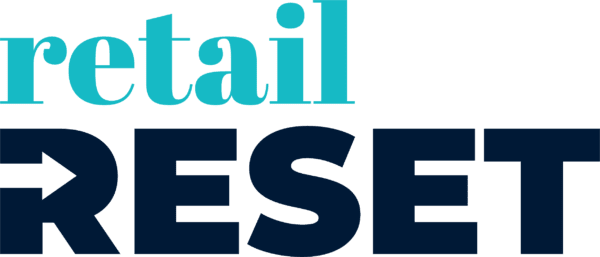 For decades, the ‘Service-Profit Chain’ concept that engaged employees led to satisfied customers and ultimately, greater profitability, has been widely accepted and practiced across many industries, particularly businesses where customers routinely have face-to-face interactions with employees. While no one can predict the full impact of the COVID-19 crisis on the economy and marketplace long-term, there are some obvious short-term effects.
For decades, the ‘Service-Profit Chain’ concept that engaged employees led to satisfied customers and ultimately, greater profitability, has been widely accepted and practiced across many industries, particularly businesses where customers routinely have face-to-face interactions with employees. While no one can predict the full impact of the COVID-19 crisis on the economy and marketplace long-term, there are some obvious short-term effects.
- In essential positions, where employees work at grocery stores, pharmacies or health care facilities, these individuals put themselves at risk daily simply through continued public contact rather than staying safe at home. Many would rather not be at work regardless of their paycheck.
- When employees engage with the public one-on-one, it’s typically going to be an abbreviated encounter at a distance safeguarded by protective equipment (e.g. plexiglass, wearing sanitary masks, gloves, etc.).
- In many situations, employees who work under these circumstances are being asked to work longer hours for minimum wage pay.
- In situations where businesses have closed their physical locations, but people still work remotely, employees often feel disconnected from colleagues and engage with the public either over the phone or through online channels.
In situations where businesses and customers interact in ways other than face-to-face, many things are lost. For one, there’s no ability to read body language of customers. While technology can keep us connected, most would agree that it’s easier, and less distracting, to engage with customers face-to-face than through technology channels. Face-to-face channels make it easier to build relationships that go beyond simple transactions. Therefore, the entire definition of what it means to appear as an ‘engaged’ employee when dealing directly with customers is altered.
What Are The Potential Lingering Effects?
For the short term, employees and customers will have to weather having as little direct contact as possible. However, the lingering effect of the COVID-19 crisis may continue well past the time at which things begin to return to a state of normalcy. This ‘hangover’ effect may manifest itself in several ways.
- Employees may carry lingering resentment of being forced to work for the same wages under more stressful conditions.
- Employees may form ‘bad habits’ of distancing themselves from customers that will linger after COVID-19 is controlled. Customers may get used to avoiding employees altogether and engage in more self-serve behavior.
- Brick-and-mortar stores, which are already struggling in many instances, may become even more irrelevant as people shift more behavior to online purchasing. The already emptying malls may fall altogether.
- If people get used to staying home and shopping less, there will be fewer ‘impulse’ purchases, which people make when exposed to items of which they may not have previously been aware, or are given the opportunity to sample, which is often the case with specialty food items.
If these things occur, it is likely many businesses and jobs will never return to their pre-COVID-19 levels. Businesses run the risk of becoming largely transaction based, rather than relationally based, which frequently serves as the fuel behind customer loyalty.
What Can Be Done?
For the short run, it’s critical for companies that have employees who work essential functions to keep their talent in the fold. Sheetz, a convenience store retailer based in Pennsylvania, has temporarily raised its employees’ pay by $3 an hour during the crisis. This is seen as a very nice gesture by both its employees and customers. The stores publicize this action as a way to communicate to customers that it cares about the people who come to work every day. Not surprisingly, Sheetz ranked within the Top 100 Best Places to Work as named in Fortune Magazine, the only convenience store retailer to do so.
With respect to Sheetz’ magnanimity to its employees, giving people more money is a good first step, but not entirely sufficient for motivating its workforce. Similarly, expressing appreciation and perhaps boosting the amount of non-cash incentives are also good things to do during this time. However, there is something even more important for inspiring employees to keep their levels of customer service as high as possible.
People need to believe their work is important and that what they do matters. Critical to keeping employees engaged with their customers is the importance of understanding the mission behind their work. Pharmacy workers need to recognize, front and center, that their companies are keeping people healthy during this difficult time. Grocery store employees sustain life by providing food. ‘Big box’ retailers provide essential supplies needed to maintain households that are sheltered together. From an operations standpoint, it’s a matter of getting people to think past what they do on a daily basis, but rather, why they do it.
While corporate mission statements are often posted on the walls, the one thing that will sustain the strong employee-customer relationship is a personal connection between the work employees do, and a bigger purpose that goes beyond the tasks that people perform. Questions companies should be asking include:
- Do my employees clearly understand the mission of our company?
- Does the mission of my company make them think their jobs are important?
- Do my employees recognize a personal connection between what they do and how it positively impacts the lives of our customers?
- Do my employees recognize how what they do on a daily basis contributes positively to their community?
During this time of crisis, many are recognizing how we are all in this together. Yet it’s possible that current conditions cause employees to feel more disconnected with their customers than ever before. This is something that will not only affect employee morale, but customer experience as well. This is particularly critical during a time when customers may be wondering whether interacting with people is important at all. We may have some emotional connection to products and brands, but positive service interactions seal those connections.
It’s easy to put aside employee engagement initiatives during this time, particularly in the face of steep budget cuts. However, the relationships between employees, their companies and their customers has never been more important than right now. The focus should be squarely on how employees recognize the importance of the daily work they do, and how their jobs contribute to something much bigger than themselves. The work people are doing right now is more than being about earning a paycheck, but rather keeping the country functioning in the face of one of its worst periods in history.
As companies think about new ways they can contribute to easing the collective pain we are experiencing, employees need clarity and inspiration on the important roles they all play. Right now there seems to be no greater key to strong employee engagement and the maintenance of loyal customer relationships.
Dr. Rick Garlick is Vice President, Strategy Consultant at Magid. He has a diverse research and consulting background that includes extensive experience with guest experience management, employee engagement measurement and training; talent selection; brand research; customer satisfaction and loyalty programs; image and awareness studies; and national opinion polling. His resume also includes experience with The Gallup Organization and Maritz Research. Prior to entering the private sector, he taught courses in research methods, marketing and persuasive communication at Michigan State University and DePaul University in Chicago













